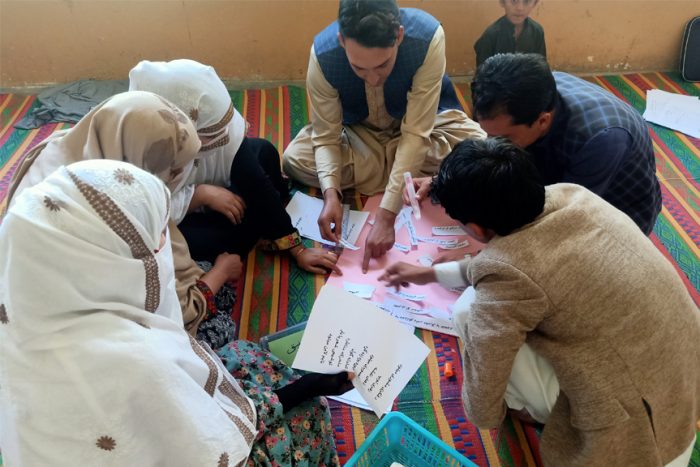One trained Master Teacher leads to improved teaching and education levels in multiple schools
“When I got back from the five-day training, I started observing and analysing the teaching approaches that we previously applied using a checklist that we got during the Master Teacher Training. The teacher and student checklists helped us assess the performance of students and teachers in the classroom and identify learning gaps. I offered feedback to the teachers based on the checklist and advised them to work towards building a more child-centred environment in their classrooms,” shared Hamida, a sixth-grade teacher at Kotalzai Girls High School (GHS) of Mihtarlam districtⁱ.
Hamida participated in a Master Teacher Training that was conducted in 2020 for government school teachers in the Mihtarlam district under the Girls Education projectⁱⁱ. Teachers were taught new teaching techniques and were sensitised on the need for monitoring cycles and follow-up visits. They were also familiarised and trained on developing content and resources to conduct coaching and mentoring sessions.
The Master Teachers’ Training, a key project activity under the Girls Education Project implemented in Afghanistan, is designed to benefit students, teachers and the education sector in the long run. Once the teachers are trained under this program, they are expected to conduct follow-up and observation visits of teachers trained under the Teachers’ Trainings, which is another component of the same project. The Master Trainers assess whether the new teaching approaches and practical learning methods are being implemented effectively and efficiently in classrooms. They are also expected to provide technical assistance to teachers when there is a need.
“In May this year (2021) I led a one-day session for eight teachers in my school, replicating what I had learned in the Master Training. I aimed to strengthen the teachers’ classroom observation skills and enhanced their capacity on helping and learning from each other’s best practises. I distributed the checklists to the teachers so that they themselves could evaluate teaching methods as well as student outcomes and behaviour. Every teacher was encouraged to observe and analyse each student as well as their own teaching methods through this exercise. This also helped teachers effectively apply new teaching techniques and create a welcoming learning environment for students.”
Hamida’s learning as a Master Trainer enabled other teachers at Kotalzai GHS to learn and apply interesting and engaging teaching methodologies, exercises and tools. Hamida also taught and encouraged her colleagues on ways to use low cost and no cost teaching materials and techniques to easily make them on their own. She urged teachers to engage students proactively while teaching them new lessons and giving them the opportunity to work in groups.
Seeing how well the teachers applied the learnings at the teacher training, Hamida organised and replicated the workshop for more teachers of another school after a week. She conducted the same training for eight teachers of the Jafar Tiar Girls High School, another government school in the same neighbourhood.
Jafar Tiar’s High School teachers learned new teaching methods and focused on learning techniques that would improve student-teacher relationship in the classrooms which is critical for long-term and effective learning. The training enhanced teacher capacities on adult learning theory, learning styles and creative teaching methods and also focused on identifying ways to address student needs. “I plan to continue conducting Teacher Training workshops at other schools in the neighbourhood, as well as in other regions. Child-centred classrooms, in my view, should be made mandatory in all schools to encourage children to attend school and to ensure that education is available to all children.”
ⁱ In Laghman
ⁱⁱ Implemented by Community World Service Asia with the support of Act for Peace and Presbyterian World Service & Development







